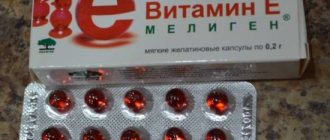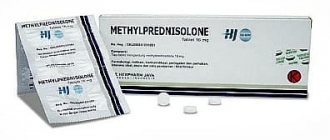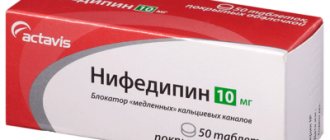In short: a huge selection of Omega-3s, the best price, hundreds of reviews, a guarantee of origin and quality here .
If you are interested in similarities, our review is for you! Omega-3 PUFAs for pregnant women are an irreplaceable substance that influences the course of basic processes in the organisms of the mother and fetus.
In particular, sufficient consumption of Omega-3 is a guarantee of the correct formation and formation of the systems and organs of the unborn baby (if there are no genetic abnormalities) - therefore it is important to take it not only at the very beginning of pregnancy, but also earlier, at the planning stage.
However, in any case, consult with your doctor; individual intolerance, like many other features of the body or the drug, has not been canceled. To support a pregnant woman’s body and effectively combat stress, the risks of which increase many times due to hormonal instability, Omega-3 intake is also necessary and mandatory. In the third trimester, this element is indispensable for preventing the dangerous disease of late stages - gestosis, as well as premature birth. It is important to remember that Omega-3 PUFAs for pregnant women are recommended for the highest purification and from high-quality raw materials - expensive fish species. This will greatly increase the benefits and eliminate even minimal health risks.
Taking Omega-3 during pregnancy
Almost all expectant mothers know about the benefits of fish oil during pregnancy. At the same time, taking Omega-3 during pregnancy can be prescribed by the doctor himself.
PUFAs are primarily necessary for the prevention of premature birth, and also reduce the possibility of preeclampsia in the third trimester. Correct adherence to the dosage regimen significantly improves the mood of the pregnant woman and helps normalize the emotional background.
Additional benefits of taking it include regulation of cholesterol levels in the blood, as well as stabilization of metabolism. If a pregnant woman’s body is overstressed, then the vitamin complex can also fight this disease. Carefully monitor the expiration date of the drug to avoid misunderstandings.
Why do pregnant women take Omega-3?
Pregnant women take Omega-3 capsules to compensate for the lack of these PUFAs (polyunsaturated fatty acids). Deficiency occurs because compounds produced by the body are wasted on fetal development. Objectives of Omega-3 when taken by pregnant women:
- Strengthen blood vessels;
- Normalize heart function;
- Ease the period of toxicosis;
- Promote fetal development;
- Promote weight regulation;
- Prevent the risk of developing hypertension;
- Increase the absorption of calcium from food and supplements;
- Reduce the risk of miscarriage in the early stages;
- Prevent premature birth.
Unlike a natural source (fish), capsules with Omega-3 cannot be harmful due to pollution of the World Ocean because they are purified from heavy metal salts and other compounds.
The best remedy for pregnancy depression: Omega-3
It is known that every day a person faces various types of stress. If there is an Omega-3 deficiency in his body, then the depressive state simply stretches over time.
Polyunsaturated fatty acids prevent negative emotions from completely taking over your mood. Omega-3s do not allow a person, including a pregnant woman, to dwell on the bad. This is a reasonable alternative for preventing depression in expectant mothers.
Which Omega-3s are best for pregnant women?
When taking Omega-3 in capsules or sachets, the expectant mother should be sure of its safety. The best option for pregnant women is fish oil obtained using cold-pressed technology and undergone multi-stage purification. The raw materials for its production are expensive varieties of sea fish. And the quality of the finished product is confirmed by certificates. A woman who cares about her health and the health of her unborn child should pay attention to American-made fish oil. We are talking about Prenatal DHA from Nordic Naturals and Super Omega 3 Gems from Carlson Labs. They are ideal sources of polyunsaturated fatty acids, are highly digestible, and do not contain dioxins. You need to buy these drugs from reliable distributors.
Tips for choosing drugs
In order for the drugs to benefit the body of the mother and baby, you need to know a few simple rules for choosing supplements.
When to start taking vitamins
Fatty acids are necessary for any person, and during pregnancy the need for them increases significantly. Therefore, you need to take vitamins from the 1st trimester throughout the entire period of bearing a child and during the first 4-6 months after birth. Experts in the field of gynecology advise starting to take supplements even when planning pregnancy in order to stimulate the functioning of the female reproductive system.
Composition and quality of products
The daily dose of the drug should contain at least 500 mg of omega-3, and the DHA/EPA ratio is normally 2:1. The packaging must indicate the concentrations of all active substances included in the product, indicating their percentage of the daily requirement of the pregnant woman. It is better that the source of vitamins is natural, cold-pressed fish oil.
To determine the quality of the product after purchase, pay attention to the following points:
- the bottle or blisters with capsules must be hermetically sealed;
- the capsule shell is undamaged, inside there is a transparent content of an oily consistency;
- the medicine may have a characteristic “fishy” aroma and taste.
The best manufacturing companies
The pharmacological market offers many products for pregnant women with omega-3 from different companies, but the highest quality dietary supplements are from American corporations (Nordic Naturals, ChildLife, Minami Nutrition, Country Life). Supplements from the British manufacturer Vitabiotics are also popular. All of them use cold-press technology to obtain fish oil and subject their products to a multi-stage purification and filtration system. The quality of the goods is confirmed by certificates of international independent experts.
Omega-3 dosage when planning pregnancy
Recommendations from specialists on the dosage of the Omega-3 drug when planning pregnancy may differ depending on the characteristics of the female body. In general, it is generally accepted that the average amount of PUFAs for a healthy woman is 1000 mg. It must be remembered that standard capsules can contain both different volumes and different compositions (EPA, DHA). Some experts believe that during the period of planning a child, this dose can be doubled. Much will depend on the woman’s age - a specialist will prescribe the dosage in each specific case; in addition, carefully follow the recommendations for use indicated on the packaging. While taking the drug, you should pay close attention to possible side effects, primarily discomfort in the stomach and attacks of sudden nausea. If such symptoms are severe, you need to reduce the dose to the standard one and try to increase it gradually.
Omega 3-6-9 during pregnancy: which one to choose?
Fish oil capsules for pregnant women in the Omega 3-6-9 complex are unique. After all, its contents have an active effect on the body of the expectant mother. They have a positive effect on the main systems of the pregnant woman’s body, on cell membranes and metabolic processes.
She does not have to include expensive foods containing omega fatty acids in her diet. It is enough to take Omega-3 PUFAs or a specialized 3-6-9 complex.
Polyunsaturated fatty acids Omega-3 and Omega-6 and monounsaturated Omega-9 acid in the right concentration will help quickly fill the expectant mother’s body with fatty acids. And this will have a positive effect on the condition and functioning of the body’s key systems - cardiovascular, nervous, immune, etc. But Omega-3 is considered to be the leader in popularity among this trinity.
TOP 4 Omega-3 Supplements After Childbirth
Taking fatty acids is very important in the postpartum period: to stabilize the emotional state and prevent the development of depression, for the proper formation of the baby’s nervous system. We bring to your attention the 3 best dietary supplements in tablet form.
№4 Omega-3 Trimester
Omega-3 trimester caps. 500 mg No. 120
from 345 ₽
More details
Price per serving: 11.5 rubles
This complex is also intended for those who are breastfeeding. The daily serving (4 caps) contains 200 mg of DHA, 160 mg of EPA, and additionally contains vitamins A, E, D3, B9, B12.
Characteristic:
- country of origin: Russia (raw materials: Iceland);
- package volume – 120 capsules;
- daily dosage – 4 capsules.
Pros:
- source of omega-3 – Icelandic fish oil;
- does not contain dyes or other non-target additives;
- One package is enough for the course;
- cheaper than analogues.
Minuses:
- the concentration of acids is lower than that of some manufacturers;
- Not available in all pharmacies.
No. 3 Wholemega for moms, New Chapter (USA)
New Chapter, Wholemega for Moms, 500 mg, 180 Softgels
from 3,222 ₽
More details
This supplement is suitable not only for expectant mothers, but also for new mothers. The products of the American company have international quality certificates. The dietary supplement is sold in soft tablets, 180 pieces in each bottle. A serving of the product (4 caps) contains 220 DHA, 180 EPA, vitamin D3, and additionally contains unsaturated fatty acids omega 6 and 9. Gluten-free product.
Pros:
- source of Omega 3 – natural salmon oil;
- modern production technologies;
- small tablets are easy to swallow.
Minuses:
- the acid concentration is lower than that of other manufacturers.
No. 2 DHA for nursing mothers, Carlson Labs (USA)
Carlson Labs, Nursing DHA, 500 mg, 120 Softgels
from 2,727 ₽
More details
For production, the company selects only high-quality Norwegian fats without mercury and toxins. The drug is available in a bottle with 120 gel capsules. Each capsule contains 500 mg of DHA and 100 mg of EPA, 6.7 mg of alpha-tocopherol.
Pros:
- daily requirement of Omega-3 in 1 capsule;
- without preservatives and flavors;
- there are no side effects when taken.
Minuses:
- No.
No. 1 Postnatal Omega-3, Nordic Naturals (USA)
Nordic Naturals, Postnatal Omega-3, Lemon, 650 mg, 60 Softgels
from 2,276 ₽
More details
Nordic Naturals is recognized as the best manufacturer of nutritional supplements for pregnant women due to its unique raw material selection system and molecular purification technology. Postnatal Omega-3 is available in the form of lemon-flavored soft capsules, 60 pieces per bottle. Amount of nutrients per serving (2 caps): 456 DHA, 586 EPA, 1000 IU cholecalciferol.
Pros:
- very high concentrations of acids;
- guaranteed product purity and safety;
- only natural ingredients in the composition.
Minuses:
- not detected.
The best Omega-3 supplements for pregnant women
To benefit from Omega-3, only purified fish oil in convenient capsules is suitable for pregnant women. An important point when choosing is the absence of dioxins, which are found in almost any marine fish. Expectant mothers are suitable for developments from Nordic Naturals, which supplies the market with Unflavored Formula and Prenatal DHA.
Oil from expensive fish species is used; during the cleaning procedure, the structure of the beneficial Omega-3 acid is not damaged. Another good option is Carlson products. The basis is taken from environmentally friendly raw materials from Norway.
How Omega-3 deficiency manifests itself in expectant mothers: symptoms
According to medical statistics, Omega-3 deficiency is observed in 8 out of 10 expectant mothers. It is fraught with:
- feeling tired, lack of strength
- fatigue
- deterioration of the skin, hair and nails
- bad mood
- increased blood sugar up to gestational diabetes
- myalgia and joint pain
- increased blood pressure
- exacerbation of chronic diseases
- toxicosis in the early stages, gestosis in the later stages
- deterioration of utero-placental blood flow
Omega-3 when planning pregnancy
Polyunsaturated fatty acids have a positive effect on the reproductive system, so taking Omega3 is recommended not only during pregnancy, but also at the planning stage. How Omega-3 affects the female body:
- Ensures normal maturation and release of the egg, which greatly increases the chances of successful conception.
- Has an antioxidant effect.
- Takes an active part in the production of hormones important for the expectant mother - prostaglandins.
When planning pregnancy, it is necessary to consume PUFAs in a standard daily dose.
Omega-3 is included in a complex of drugs that are recommended for women in preparation for IVF.
Choosing Omega-3 during pregnancy in the 1st trimester
There is an opinion that you should not drink Omega-3 in the first trimester. But it is not so. In this case, we are talking about fish oil (fish liver oil) with vitamins A and D. Vitamin A, especially in the first trimester, has a negative effect on the fetus. Omega-3 fish oil does not contain vitamin A, so it cannot harm you.
The drug should be intended for pregnant women. This fish oil is highly purified from dioxin. This criterion is taken as a basis by Nordic Naturals in the production of Unflavored Formula, Prenatal DHA. Another high-quality fish oil capsule is produced by Carlson, but it is not only intended for pregnant women.
Contraindications and adverse reactions
Despite the fact that omega-3 drugs are considered relatively safe, they cannot be used for the following pathologies:
- individual intolerance;
- decreased blood clotting;
- tuberculosis;
- severe renal and liver failure;
- disorders of the thyroid gland.
Adverse reactions that may accompany taking supplements occur, as a rule, with hypersensitivity and long-term use. The expectant mother may experience the following side effects:
- headache;
- dyspeptic disorders;
- high blood pressure;
- feeling of thirst;
- weakness.
If they appear, you should consult a doctor who will stop the drug or reduce the dosage.
Choosing Omega-3 during pregnancy in the 2nd trimester
Omega-3 fatty acids are an extremely useful product during pregnancy. Omega-3s are especially important in the second trimester, when the fetus rapidly gains weight. During this period, the child in the womb needs to receive 30-50 mg of polyunsaturated fatty acids per day.
In the second trimester of pregnancy, Omega-3s provide essential benefits to the fetus:
- have a positive effect on the development of the nervous system;
- take part in the formation of the visual analyzer;
- contribute to the harmonious formation of the brain;
- improve the absorption of calcium and magnesium;
- participate in the formation of the child's intelligence.
To ensure that the child receives the right amount of Omega-3 fatty acids, it is important to introduce these acids into the diet of a pregnant woman.
Choose high-quality, 100% natural supplements that will help you maintain optimal levels of these acids in your body and feel great throughout your pregnancy.
The role of Omega-3 in fetal formation
The body of a child in the womb, just like the body of an already born person, does not synthesize ALA, EPA and DHA. He receives these acids from the mother's body.
- Omega-3 is part of the cell membranes of the fetus
- in the early stages, PUFAs are needed for the normal development of all systems of the baby’s body
- Omega-3 has an antimutagenic effect
- EPA and DHA are involved in the development of the child’s nervous and visual systems
- after 30 weeks of pregnancy and up to 3 months from birth, Omega-3 PUFAs accumulate in the child’s nervous system, which in the future affects health and mental development
Omega-3 PUFAs are needed for the normal formation and development of all organs and systems of the fetus.
According to the latter fact, studies were carried out in the UK and the USA.
- English scientists have found that higher intellectual development is observed in children whose mothers consumed Omega-3 as a dietary supplement during pregnancy and breastfeeding and, accordingly, received the norm of PUFAs for themselves and the child. In addition, the motor skills and coordination of movements in these children were also better than the average.
- The US National Institutes of Health also concluded that omega-3 intake by expectant mothers affects their children's intelligence and ability to learn languages.
IMPORTANT: Scientists Golding and Khiblin from the UK, observing pregnant women taking Omega-3, and later children for 15 years, found that PUFAs also affect their communication abilities. Babies who grew up in the womb “on fish oil” turned out to be more sociable.
If a pregnant woman does not eat fatty fish and plant sources of Omega-3, the child’s health suffers. The baby may be born:
- underweight and stunted
- prone to allergies
- reduced intellectual abilities
- impaired motor skills
- weak immunity
Choosing Omega-3 during pregnancy in the 3rd trimester
During the third trimester of pregnancy, the organs and tissues of the fetus are actively preparing to allow the newborn to be born without problems and easily adapt to life outside the womb. For this, the baby needs high-quality support - including in the form of mandatory elements - omega 3 PUFAs.
The pregnant woman’s body also intensively prepares to fulfill its most important task - giving birth. Considering that the growing uterus puts pressure on the internal organs, new problems appear - belching, heartburn. Taking some vitamin complexes and dietary supplements becomes difficult and unpleasant. But refusal to take Omega-3 is unreasonable - the lack of this PUFA threatens not only the fetus, but also the pregnant woman herself, provoking the development of a formidable disease in the third trimester of pregnancy - eclampsia, gestosis, and also increasing the risks of premature birth.
The optimal solution is to choose a supplement that does not have the specific odor of fish oil and does not leave any unpleasant sensations when taken. For example, Prenatal DHA, Unflavored Formula. The manufacturing company Nordic Naturals also took care of the size of the capsules - swallowing them will not be difficult.
Omega-3 dosage for pregnant women
Omega-3 should be taken during pregnancy in the dosage prescribed by your doctor. In most cases, women are prescribed 300 ml of fish oil per day. In this case, the maximum duration of taking the drug is 3 months.
Manufacturers produce Omega-3 in different dosages, which must be taken into account by expectant mothers. Before using the drug, read the instructions - they always contain recommendations for taking fish oil. So, for example, if you buy Omega-3 from Nordic Naturals, you need to consume it 1 packet 2 times a day.
It is advisable to drink fish oil during or after meals. Otherwise, it can cause nausea, which is especially dangerous in the first trimester.
TOP 7 best Omega-3 for children
After analyzing the market offers in this segment, we selected the highest quality drugs:
- Olimp Gold Omega 3 Sport Edition;
- Univit Kids with Omega-3;
- TeddyVit Omega-3;
- Oslomega Baby's DHA Norwegian series DHA with vitamin D3;
- NORWEGIAN Fish Oil Omega-3;
- Doppelhertz Kinder Omega-3;
- Biopharma Barne Tran Omega-3.
We will tell you about all the drugs in more detail, indicating the main characteristics, advantages and disadvantages, and prices. You can also read the opinions of users who have already purchased this drug.
Olimp Gold Omega 3 Sport Edition
A fairly well-known dietary supplement that contains premium, concentrated fish oil from fish from the northern seas, containing 65% of beneficial Omega-3 PUFAs. The drug is perfect for a child over 14 years of age, especially if he leads an active lifestyle and plays sports. In addition, each capsule contains 12 mg of vitamin E.
| Release form | capsules/tablets |
| Recommended | children over 14 years old |
| Amount in a package | 120 pcs. |
Price: 1,305-1,863 rub.
pros
- high content of Omega-3 PUFAs;
- convenient to take.
Minuses
- not found.
Nice sized capsules that are easy to swallow. A time-tested manufacturer with a worldwide reputation. My son is 15 years old, he is actively involved in football, and is currently taking the drug 1 capsule per day. No side effects were noted. In harsh Russian conditions, as an additional (and sometimes the only) source of Omega-3, this is just the thing! I recommend!
Omega-3 for children Olimp Gold Omega 3 Sport Edition
Univit Kids with Omega-3
The dietary supplement is available in the form of lozenges, which can be given to children starting from the age of four. In addition, the drug contains various vitamins: B1, B6, C, E, B2, A, folic acid, calcium, which makes it an indispensable vitamin complex for children.
| Release form | lozenges |
| Child's age | over 4 years old |
| Package Contents | 30 pcs. |
Cost: from 509 rub.
pros
- many multivitamins and minerals;
- Can be used from 4 years of age.
Minuses
- unpleasant smell of lozenges.
When my daughter started taking Univit Kids vitamins with omega 3, she stopped getting sick often, although she used to get sick very often. True, he takes lozenges without much pleasure, they smell very unpleasant, and they taste like fish.
Omega-3 for children Univit Kids with Omega-3
TeddyVit Omega-3
TeddyVit is recommended for children over 3 years of age. The dietary supplement contains ocean fish oil and is available in cherry or multifruit flavors. The supplement is taken 3 capsules per day for a month as a general tonic.
| Children aged | over 3 years old |
| Available in the form | capsules |
| Package Contents | 80 pcs. |
Price: from 391 rub.
pros
- good taste;
- Convenient release form, the child swallows easily.
- taking the drug from three years of age.
Minuses
- not found.
The taste is excellent, the cherry is like real cherries. I couldn’t resist, I decided to try it myself, I liked it. My son likes these vitamins, he calls them candies. And since the child likes it, then we have no problems taking the drug. I recommend!
Omega-3 for children TeddyVit Omega-3
Oslomega Baby's DHA Norwegian Series DHA with Vitamin D3
Docosahexaenoic Acid (DHA) with Vitamin D Oslomega Baby's DHA contains concentrated fish oil, highly processed in Norway. One serving of the drug contains 800 mg of DHA and 600 IU of vitamin D. The daily dose is calculated based on the child’s weight, full information is provided in the attached instructions.
| Release form | concentrated liquid |
| Quantity of the drug in the package | 60 ml |
| Recommended | only as directed by your pediatrician |
Cost: from 1,750 rub.
pros
- it is possible to prescribe the drug to infants;
- high content of DHA and vitamin D.
Minuses
- not found.
Our local pediatrician prescribed Omega-3 to us. My son is only 10 months old, I couldn’t even imagine how to give him this fish oil. It turned out that everything is simple - I add it from a pipette to the porridge. My son doesn't even notice the medicine. For those who have small children, I recommend this drug.
Omega-3 for children Oslomega Baby's DHA Norwegian series DHA with vitamin D3
NORWEGIAN Fish Oil Omega-3
The product contains two strong antioxidants - eicosapentaenoic and docosahexaenoic acids, which are the most important Omega-3 fatty acids and have a pronounced effect on the cardiovascular system, fat and calcium metabolism in the body. The basis of the drug is cod liver oil. It is prescribed for children starting from the age of three.
| Release form | liquid |
| Contents per dose | 1080 mg omega-3 |
| Child's age | over 3 years old |
Price: from 2,031 rub.
pros
- excellent quality of the drug;
- convenient reception.
Minuses
- not found.
I decided to buy a dietary supplement as a gift to my family for the New Year and at the same time please myself, because fish oil has a number of beneficial properties. It is especially important to help our body in the cold season, when there is little sun and vitamins in general. I chose the NORWEGIAN Fish Oil Omega-3 Cod Liver Oil series because this drug can be taken by my daughter, who recently turned 4 years old. Let's drink with the whole family!
Omega-3 for children NORWEGIAN Fish Oil Omega-3
Doppelhertz Kinder Omega-3
The capsules contain Omega-3 PUFAs, vitamins A, D and E. Pediatricians recommend this drug for children over 7 years old, the dosage rate is determined by the doctor. And although this is a dietary supplement and not a drug, you cannot exceed the dose recommended by the pediatrician.
| Release form | capsules |
| Package Contents | 45 pcs. |
| Manufacturer | Queisser Pharma |
Cost: 549-595 rub.
pros
- small capsule size;
- there is no smell.
Minuses
- not found.
My child has atopic dermatitis, and I used to give him fish oil twice a year. This year, I myself decided to drink Omega Doppelherz, and bought the children’s version for my son. The capsules are small, the child swallows them easily. The result has already become noticeable - the skin is soft and clean, and my son has become sick much less often. I recommend!
Omega-3 for children Doppelhertz Kinder Omega-3
Biopharma Barne Tran Omega-3
The main component of the product is high-quality Norwegian fish oil and vitamins E, A and D. The drug is used as a general tonic; it remarkably improves immunity, therefore it is often prescribed to frequently ill children. The dietary supplement is available in the form of fruit syrup, so children take it with pleasure.
| Child's age | over 3 years old |
| Manufacturer country | Norway |
| Daily dose | 5 ml (teaspoon) |
Price: from 1,000 rub.
pros
- high content of Omega-3 PUFAs - 1100 mg per 5 ml;
- excellent quality of drug components;
- the syrup has a fruity taste.
Minuses
- not found.
I bought Biopharma Barne Tran Omega-3 for my son and I definitely give him this drug as soon as autumn comes. My child is only 3 years old, so I buy Omega-3 in liquid form, because he is unlikely to be able to swallow a tablet or capsule. At first I was worried that this fish oil would smell unpleasant and my son would refuse to drink it. However, my son liked the syrup and takes it with pleasure. So you can safely buy for children!
Omega-3 for children Biopharma Barne Tran Omega-3
Vitamins with Omega-3 for pregnant women
Omega-3 PUFAs for pregnant women stabilize the functioning of the nervous system, reduce the risk of blood clots and cholesterol levels, stimulate metabolism, and have a beneficial effect on mental abilities. This is a great way to reduce the risk of gestosis. It is familiar firsthand to many pregnant women, as it manifests itself in shortness of breath, swelling, pressure fluctuations, and sometimes convulsions.
In addition, a woman’s immune system does not always adequately perceive the fetus. In some cases, this problem leads to miscarriage. It is Omega-3 vitamins that stimulate the formation of immunity during pregnancy, significantly reducing the risk of the mother’s body rejecting the developing fetus.
What are omega-3 polyunsaturated fatty acids and why do expectant mothers need them?
There are 20 fatty acids present in humans; most of these compounds are synthesized in the body - and only some come from the outside; these include omega-3 and omega-6.
Omega-3 polyunsaturated fatty acids are organic nutrients that are involved at the cellular level in key processes in the body.
In the late 70s of the 20th century, Danish researchers discovered that the Eskimos of Greenland rarely get heart attacks. The main food of the Eskimos - sea fish - is rich in omega-3 fatty acids, the same substances were found in large quantities among the inhabitants of Greenland. In the bodies of the Danes themselves, the level of omega-3 was lower, and the percentage of heart attacks among the population was many times higher.
In the omega-3 family, the main acids for humans are:
- alpha-linolenic - less useful, as it is more difficult to digest; found in flaxseed;
- eicosapentaenoic acid - easier to digest, the main source is fish oil;
- docosahexaenoic acid - also found in fish oil, the most important of the three for the development of children.
The older generation remembers how in childhood doctors and mothers forced them to drink spoonfuls of fish oil; Now the fat is packaged in capsules, and the bottles have inscriptions in English
The role of omega-3 in the body
Fatty acids are carried throughout the body in the blood; Omega-3s are integrated into cell membranes, and the cell has reliable protection against the penetration of toxins.
More about the benefits of omega-3:
- improve the functioning of the heart and blood vessels;
- have a positive effect on memory and thinking abilities;
- improve the condition of skin and hair;
- stop the development of inflammation, including joint inflammation;
- reduce the risk of blood clots;
- form immune defense;
- give strength.
Omega-3 fatty acids have been shown to reduce the threat of cancer, especially colon cancer.
Rospotrebnadzor has determined the daily norm of fatty acids: a person needs from 0.8 to 1.6 grams.
The population of Russia is catastrophically lacking omega-3 in the body; four out of five Russians are experiencing a shortage of this valuable element.
Benefits of omega-3 during pregnancy
Fatty acids help to safely carry a baby, maintain the health of the mother and prevent the development of pathologies in the unborn child. Doctors vote for the inclusion of omega-3 products or dietary supplements with fatty acids in a pregnant woman’s diet. In this case, the woman will most likely avoid:
- premature birth - since omega-3s prolong pregnancy;
- metabolic disorders;
- fetoplacental insufficiency - malfunction of the placenta, a temporary organ that protects and nourishes the fetus; the activity of the placenta depends on blood circulation, and blood circulation largely depends on the level of omega-3;
- high blood pressure - with normal functioning of the heart and blood vessels, the risk of hypertension is excluded;
- gestosis or late toxicosis - a dangerous pathology that occurs in pregnant women, which is accompanied by dysfunction of the heart, liver, kidneys, sometimes it comes to seizures, the woman falls into a coma (eclampsia);
- difficult childbirth;
- depression.
Docosahexaenoic acid accumulates in the brain, as well as in the organs responsible for vision and in the reproductive system. In the fetus, with a sufficient level of the valuable element, the brain matter and visual functions are formed normally.
Researchers from the UK, USA and Canada have spent decades studying the effects of omega-3s on children's development in the womb and after birth. When there were not enough acids in the body, problems with brain function began.
In healthy children the following is normal and above normal:
- the ability to perceive and process information;
- coordination of movements;
- fine motor skills (such as writing);
When a child writes words or draws small details, he practices motor skills, which are also responsible for the level of omega-3 in the body
- ability to learn foreign languages;
- level of sociability.
With kids who had an omega-3 deficiency, the opposite is true: difficulties in mastering educational material, inability to communicate, and confused speech. A number of scientists also associate a lack of fatty acids during intrauterine development with the subsequent appearance in children of:
- nervous disorders;
- diathesis;
- allergic reactions;
- visual defects;
- hypertension (in adulthood).
Omega-3 fatty acids affect the formation of the retina; if there is a lack of substances, the child may develop visual defects
The peculiarity of polyunsaturated acids is their long-term accumulation in the body. After conception, the consumption of substances increases - the developing fetus takes part of the omega-3 from the mother; The most is spent in the 3rd trimester, when the number of brain convolutions in the unborn child grows and their depth increases. In order for the baby to grow healthy and not lag behind in development, the mother’s body daily gives from 2 to 4 grams of omega-3 - that is, sometimes more than two daily requirements. Therefore, it is important to start accumulating a valuable element when the baby first appears in the project.
What indicates a deficiency of fatty acids in the body of the expectant mother?
The usual foods on our table, as a rule, are not friendly with omega-3 fatty acids; Already in the 1st trimester, a pregnant woman experiences signs of a lack of elements in the body. By the end of the 2nd trimester, the baby “sucks out” a significant part of the valuable fats, then the woman develops:
- fatigue from the slightest physical exertion;
- weakness throughout the body;
- joint pain;
- forgetfulness;
- dry skin, brittle hair and nails;
- itching, peeling of the skin and other allergy symptoms;
- “minor” mood, signs of depression.
When there is a deficiency of fatty acids in the expectant mother’s body, the woman often becomes depressed
Omega-3 dosage during pregnancy
There are no clear and strict standards for the dosage of Omega-3 for pregnant women - PUFAs should be taken in a dose sufficient for each expectant mother, which a specialist will help determine. In general, daily intake of 1000-1200 mg of Omega-3 (two standard capsules) from early pregnancy will be sufficient for normal fetal development.
Exceeding the daily dose is undesirable, although it is not noted as harmful. If the recommended dose is constantly exceeded by 3-4 times, there is a risk of allergic reactions (rarely), or gastrointestinal disorders (more often). A couple of capsules per day (1000 mg) will be a completely safe and sufficient dose for a healthy woman who does not suffer from serious problems.
Sources of Omega-3 for Expectant Mothers
Some ladies vigilantly monitor their diet and look for products with valuable fats on store shelves. And others prefer to take drugs with omega-3 - especially during toxicosis from fish or vegetable oil, sometimes they simply feel sick.
Who should not be prescribed products with fatty acids?
Omega-3 nutritional supplements are made from natural ingredients; They are absorbed in the body without problems. No toxins - but only if they are high quality, thoroughly cleaned. Unfortunately, there are products on the market that contain mercury, a substance dangerous to the fetus that affects the baby’s brain. The manufacturer is unlikely to indicate on the packaging that the dietary supplement contains fish oil with traces of mercury; Most likely, a well-informed doctor will help the expectant mother understand dangerous and safe drugs.
Even high-quality dietary supplements with fish oil contain contraindications, including:
- allergic reaction to sea fish;
- severe liver pathologies;
- deposits of stones in the kidneys, as well as in the gall bladder - including due to hypercalcemia (increased levels of calcium in the blood);
- tuberculosis;
- hemorrhagic syndrome - increased bleeding of blood vessels; occurs, for example, with hepatitis, viral infections, hemophilia;
- internal organ injuries;
- upcoming surgery.
Fatty acids thin the blood, so two weeks before giving birth, pregnant women need to stop taking dietary supplements with omega-3 - otherwise the birth of the baby will be accompanied by heavy bleeding.
Adverse reactions from dietary supplements are minor and rare. Among them:
- belching;
- nausea, vomiting;
- heartburn;
- digestive disorders.
Occasionally, dietary supplements with fatty acids cause nausea in expectant mothers, especially during toxicosis.
To get an overdose of dietary supplements, you need to try; Fatty acids accumulate in the body for a long time, so long-term use will not lead to poisoning. But an unauthorized increase in dosage threatens a woman with intoxication, the signs of which include:
- chest pain;
- headache;
- decreased appetite;
- feeling of thirst;
- bloating;
- vomit;
- diarrhea, upset stomach;
- bruising;
- profuse bleeding.
If such signs occur, put the dietary supplement away and rush to the doctor - he will prescribe medications that will relieve the symptoms of poisoning. Before going to the doctor, you can empty your stomach yourself by inducing vomiting (a glass of soda solution inside followed by pressing on the root of the tongue); Drinking plenty of water won’t hurt either - excess omega-3 will leave the body faster.
By the way, in severe cases, an ambulance comes to those who have “overeaten” fatty acids.
How dietary supplements interact with medications and vitamins
In principle, taking omega-3 does not contradict the simultaneous use of most medications. Those who are being treated with blood thinners (Clopidogrel, Warfarin) should refrain from dietary supplements with fatty acids, because omega-3 will enhance the effect of the medications, which is undesirable.
In addition to omega-3, dietary supplements may contain vitamins; in this case, do not take multivitamin complexes at the same time, otherwise you will get an overdose. An excess of vitamins A, E, D is dangerous for pregnant women (A and D are already contained in fish oil, and E is often added to dietary supplements with fatty acids).
And such a nuance: for health, equal levels of omega-3 and omega-6 in the body are required; if there is a bias in favor of omega-6, it is impossible to fight infectious inflammation, since this family provokes them. The main source of omega-6 is vegetable oils, especially sunflower, soybean, and corn oils, which are especially common in Russia. Reduce the amount of such oils in your diet - and when taking products with omega-3, the balance of acids will be restored.
Popular Omega-3 Supplements for Pregnancy
Before you go to the pharmacy to buy the drug, visit your doctor: a competent doctor will recommend a drug with the optimal combination of price and quality, and will clarify the dosage and course of administration.
Omegamama 9 months
The Swiss-Russian product is made specifically for those who are pregnant. They are capsules containing fish oil purified from impurities. One package contains 30 capsules.
As raw materials for the production of food additives, fish are chosen that live at depth and for a short time - these are sardines and anchovies (the latter are relatives of sprat). Such sea inhabitants do not have time to accumulate mercury, cadmium and other harmful substances in their organs. A high degree of purification of the drug will be confirmed by the absence of a fishy odor in the capsules.
A small fish called anchovy is a valuable source of omega-3 acids; Fish oil extracted from anchovies is used to prepare the dietary supplement Omegamama
Each Omegamama capsule is coated with gelatin and contains 150 milligrams of fatty acids; almost a quarter is docosahexaenoic acid. Auxiliary components include glycerin and dyes.
Dosage according to instructions: twice a day, one capsule. The product is swallowed with food. The recommended course of treatment is one month. Pregnant women need to check the dose and timing with their doctor. The only contraindication is intolerance to substances from the dietary supplement.
Although Omegamama is not included in the list of medications, the drug is prescribed as part of complex therapy for women who:
- threat of premature birth;
- disruption of placenta formation;
- signs of thrombophilia;
- intrauterine growth retardation.
The dietary supplement retains its properties for two years. You can buy Omegamama in pharmacies for 570 rubles per pack.
The price of the Omagama food supplement is steep, but the drug is known for its high quality
Doppelhertz Active Omega-3
The German dietary supplement contains purified fatty acids extracted from salmon living in Arctic waters. Produced in capsules with a gelatin shell, packaged in jars of 30 or 80 pieces.
Recent Entries
Is it possible to give a mirror: how to protect yourself from bad omens It became known about the influence of cell phone towers on human health Is it possible to eat bananas bought in Russia?
Arctic salmon is a source of fatty acids that are added to Doppelhertz Active Omega-3
Active ingredients in the composition:
- Omega-3 acids - each capsule contains a quarter of the daily requirement;
- vitamin E (tocopherol) - each capsule contains half the daily requirement.
The instructions recommend one capsule of fish oil per day with meals, but clarifies that the final decision on the amount and timing of administration is made by the doctor. Despite the fact that the product is sold without a prescription, pregnant women use Doppelherz Omega-3 only after the approval of the attending physician.
The price in pharmacies for a package of 30 capsules is 320–370 rubles.
The Doppelgerz Omega-3 dietary supplement has an affordable price, however, it is better for expectant mothers to take the capsules with caution, after the doctor’s permission
Multi-tabs Perinatal Omega-3
Dietary supplement in the form of gelatin capsules, which is produced in Denmark. Designed primarily for expectant mothers and women on the verge of pregnancy. Contains:
- docosahexaenoic acid - 150 mg;
- eicosapentaenoic acid - 30 mg;
- vitamin E.
Capsules with fish oil and vitamins are packaged in plastic bottles of 60 or 100 pieces. The instructions advise pregnant women and those planning to conceive to swallow 3-4 capsules per day, without chewing, with food. Only intolerance to the components of the dietary supplement serves as a contraindication for use.
Sometimes, after trying the product, the expectant mother feels nausea or a fishy aftertaste in her mouth.
A package with 60 capsules costs about 700 rubles.
Omega-3 Trimester
Russian biocomplex with fat from environmentally friendly Icelandic fish. It is produced, as the name suggests, for pregnant women, and besides them - for women planning to become pregnant, for nursing mothers. The instructions suggest a daily dose of four capsules, which are taken twice (two pieces each), with food.
The daily norm of the dietary supplement contains:
- 200 mg of docosahexaenoic acid - almost a third of the daily requirement;
- 160 mg of eicosapentaenoic acid - more than a quarter of the daily requirement;
- vitamin D - daily requirement;
- vitamin A - 0.6 mg;
- vitamin E - 4 mg;
- vitamin B9 (folic acid) - 100 mcg;
- vitamin B12 - 0.6 mcg.
Total polyunsaturated fatty acids in 4 capsules of the dietary supplement are 3400 milligrams.
Those who suffer from intolerance to substances from Omega-3 Trimester should look for a replacement product. There are no other contraindications.
The duration of the course will be determined by the doctor.
A package with 120 capsules will cost approximately 400 rubles.
In general, the cheapest option is to buy Belarusian-made fish oil capsules; it also contains fatty acids, although in smaller quantities (only a fifth), but the product costs only 45 rubles. One problem - the instructions indicate that this fish oil is prohibited for pregnant women.
A solution of fish oil obtained from cod liver is also sold in pharmacies - it is also undesirable during pregnancy; The question of using the product for a pregnant woman is decided by the doctor.
Gone are the days when fish oil was drunk from spoons and did not require additional purification - now sea fish meat contains harmful substances; It is better to take the product in capsules - more expensive, but more reliable
Omega-3 Products
The main sources of omega-3 fatty acids are some types of sea fish and flax seeds (also flaxseed oil). Among fish, salmon, tuna, herring, and sardine hold the lead. Wild salmon from the Atlantic waters contains one and a half grams of valuable omega-3 acids. And there are few other fatty acids that conflict with omega-3 (for example, omega-6) in such fish.
Ten years ago, scientists from the European Union came to the conclusion: for normal gestation, a woman needs to eat a portion of salmon, mackerel or other fatty sea fish twice a week. Those who do not get such fish should take synthesized acids as part of omega-3 supplements.
It is curious that when fish dishes are heated strongly, omega-3 acids do not disappear, but when they are re-frozen, they disappear completely. So just cool it down once and that’s enough.
Flaxseed oil will enrich the body with alpha-linolenic acid. It’s a pity, when heated or in contact with air, fats quickly oxidize, so the product is not stored for long and it’s not worth frying in linseed oil. Sunlight is also harmful, so it is better to pour the oil into a dark glass bottle and then add it little by little to vegetable salads.
Walnuts also require caution - yes, they contain fatty acids, but omega-6 is also included in the company of omega-3. Not a very useful combination. The same with meat - both families are present.
In general, foods of non-animal origin do not contain enough fatty acids, so it is unlikely that it will be possible to meet the daily requirement for omega-3 with vegetables, fruits and cereals (with the exception of vegetable oils).
Table: foods high in omega-3 acids
| Name | Omega-3 content per 100 grams of product | Amount to daily requirement |
| Cod liver | 15 g | from 10 to 17 norms |
| Mackerel | 5 g | 2.5–5 norms |
| Herring, tuna | from 1.2 to 3.1 g | up to 3.5 norms |
| Atlantic salmon | from 1.5 to 2.15 g | up to 2.5 norms |
| Halibut | 1.8 g | 1–2 norms |
| Trout | from 0.5 to 1.6 g | up to 2 norms |
| Linseed oil | 57 g (!) | up to 60 norms (daily norm - 1 tsp) |
| Flax seeds | 22.8 g | up to 23 norms |
| Soybean oil | from 7 to 10 g | up to 11 norms (daily norm - 1 tbsp.) |
| Rapeseed oil | 10.5 g | up to 11 norms |
| Olive oil | 9 g | up to 10 norms |
| Walnuts | 7 g (in 5–10 pieces - daily requirement) | up to 8 norms (daily norm - 5–10 pieces) |
| Oat germ | 1.4 g | 1–1.5 norms |
Fish, of course, is a healthy product, but unsafe: predatory species accumulate toxins. Whenever possible, choose younger fish rather than older ones. By the way, river species also contain omega-3 fatty acids - however, three times less than sea ones.
Both seafood and walnuts are allergens; Be careful, at the first sign of an allergic reaction, exclude it from the menu and switch to dietary supplements with omega-3, which the doctor will recommend.
Photo gallery: champion products for omega-3 content
Just 15–20 grams of cod liver is enough for the daily requirement of omega-3 for pregnant women
Mackerel is also rich in omega-3s, but older fish may contain heavy metals.
Salmon is tasty and rich in fatty acids - it’s a pity it’s not cheap
Most of flaxseed oil is omega-3 fatty acids
Walnuts contain enough healthy fat - 5 kernels fill the daily requirement
Should pregnant women take Omega-3?
In Europe, Omega-3 fatty acids have long been recommended for women during pregnancy. Fish oil reduces the percentage of premature births up to 38 weeks and promotes optimal fetal weight gain.
Omega-3 during pregnancy contributes to:
- increasing the IQ of the unborn child;
- optimizes the mother's hormonal levels;
- reduces the incidence of postpartum depression in women.
Taking Omega-3 during pregnancy also normalizes a woman’s metabolism, strengthens blood vessels, improves immunity and improves brain function. Expectant mothers who consume polyunsaturated fatty acids can boast of good health and energy, so the answer to the question about the need to consume Omega-3 during pregnancy is definitely positive.
How do Omega 3s affect pregnancy?
Scientists and doctors are conducting various studies on this matter, during which they were able to find out the following:
- Omega-3 generally improves the well-being of the expectant mother. Fatty acids regulate its fat metabolism, strengthen the walls of blood vessels, fight “bad” cholesterol, and balance the functioning of the nervous system.
- Pregnancy is a difficult period for a woman’s immune system; she is susceptible to infectious diseases. DHA and EPA strengthen the immune system, help the female body resist pathogens from the external environment, and stimulate defenses against its own opportunistic microflora. Alpha-linolenic acid, for example, prevents relapses of herpes, a viral infection in pregnant women.
- Omega-3 acids have an antithrombotic effect on the body of a pregnant woman and make her blood less viscous. This helps to improve fetal nutrition through the placenta.
- It turned out that taking fish oil helps prevent toxicosis, gestosis and eclampsia in a pregnant woman.
- DHA and EPA affect pregnancy rates, preventing miscarriages and premature births.
- Omega-3, improving brain function and balancing the nervous system, helps a woman fight depression both during pregnancy and after childbirth.
- Fish oil improves performance, attention and concentration, which is very important for working pregnant women.
Omega-3 is taken to prevent hypertension in expectant mothers.
Omega-3 price for pregnant women
How much does fish oil capsules cost for pregnant women? Based on the prices set by pharmacies, Omega-3 PUFAs in this format are not cheap. The drug fell into the “above average price” category. Serious manufacturers in Russia sell at a price of 3-3.5 thousand rubles for 90 capsules.
Not everyone can afford to buy Omega-3, which unscrupulous manufacturers have taken advantage of. The shelves of sports stores are filled with counterfeits of fish oil capsules, incl. famous brands. There are quite a lot of cases of detection of fakes, be careful when choosing.
It is alarming that the domestic market is not shy about displaying expensive, expired fish oil capsules for pregnant women that are lying around with sellers. Buy 130 capsules of Carlson Labs, Super Omega 3 Gems for RUB 1,200. link. And feel the difference.
Where to buy Omega-3 for pregnant women
Omega-3 is one of the most popular types of dietary supplement among expectant mothers, which is why it is often counterfeited and overpriced. Be careful when using counterfeits, you will not only not get the desired effect, but also risk getting side effects. Buy original Omega-3 from official dealers and only reliable online retailers, one of which is.
The iHerb hypermarket offers certified Omega-3, which is offered at an affordable price in a significantly wide range. The cost for most manufacturers is lower than in offline stores, and prompt delivery is available. We once published the results of comparing prices for identical drugs; the difference reached 70%, and sometimes was twice as high as the analogue.
Reviews about Omega-3 during pregnancy
Previously, we published a large review of Omega in the form of capsules, the material attracted a huge audience, many visitors shared their experiences with us. Among these were several comments belonging to expectant mothers, we present them below:
Elena, 39 years old: During my first pregnancy, back in 2001, I didn’t take any vitamins at all. As a result, my daughter was born with a low weight of 2600 grams, and it took me a long time to restore both my health and appearance. My second pregnancy happened late - at 38 years old, and I approached it with all responsibility. From week 7 I took B vitamins, folic acid and omega-3 Prenatal DHA. As a result, I not only gave birth to a healthy baby (3450 g), but quickly returned to shape and even began to look better! I am sure that this is largely due to the regular intake of omega and the correct dosage.
Veronica, 25 years old: I started taking Omega-3 from the 16th week and after a month improvements appeared: blood biochemistry became normal, but before there were problems with calcium, hair stopped falling out, skin tone improved. Excellent and safe product!
By the way, you can leave your review too, right in the box below, no registration required!
Tiomus 15 Jul 2020 at 10:05
other user reviews (Admin)
Olya, 15 Jul 2020 at 04:48 I recently purchased Nordic Naturals, Ultimate Omega, Lemon - I was pleased. Julia S, 14 Jul 2020 at 17:51 I like Natural Factors, they have quite normal vitamins, when preparing for pregnancy I take their Omega capsules. Elena V., 14 Jul 2020 at 15:43 I buy only fish oil in capsules from the manufacturer Solgar, a quality product, I just wash it down with water, there is no smell. Elena, Jul 14, 2020 at 10:44 am High-quality capsules from Madre Labs. This is not the first time I have purchased from iHerb. Delivery on time and best price, never received a late delivery.
Prenatal complexes
Nordic Naturals, Pregnancy DHA, Unflavored Formula, 500 mg, 180 Softgels (New Packaging)
Omega-3 - 685 mg.
Servings - 90. Price of 1 mg of PUFA - $0.0008 The American Pregnancy Association recommends Nordic Naturals supplements as a source of omega-3 for pregnant women. According to the manufacturer, each batch of their fish oil is tested by independent laboratories for the presence of toxins and heavy metals. All fish oil is supplied in triglyceride form and meets the strictest international standards for purity and freshness. This supplement contains 100% of the daily value of vitamin D3. Keep this in mind if you are taking a vitamin-mineral complex that likely contains vitamin D.
Directions for Use: Take two capsules daily with food or as directed by your healthcare practitioner.
Buy at a discount
Carlson Labs, Nursing DHA, 500 mg, 120 Softgels
Omega-3 - 600 mg.
Servings - 120. Price 1 mg of PUFA - $0.0004 A very profitable option from another cool manufacturer - Carlson Labs. Almost the same amount of omega-3 as in the top preparation, only 2 times cheaper. High omega-3 content and all in one capsule. Please note that this contains vitamin E. 1 capsule contains 35% of the norm. Select supplements so as not to overdose on vitamins.
Directions for use: Take one or two softgels daily with meals.
Buy at a discount
Minami Nutrition, More DHA, Lemon Prenatal Softgels, 60 Softgels
Omega-3 - 584 mg. Servings - 60. Price 1 mg of PUFA - $0.001
This complex is good because it does not contain any other vitamins; you can take any vitamin complexes with it and not worry about overdoses of individual vitamins. In addition, it turned out to be one of the most profitable in its category. That's why he's here.
Directions for use: Take one capsule daily with food.
Buy at a discount
California Gold Nutrition, Prenatal DHA, 450 mg, 180 Fish Gelatin Softgels
Omega-3 - 540 mg. Servings - 90. Price for 1 mg of PUFA - $0.0004
This drug is similar to Nordic, but it contains less fatty acids. But this amount fits into the norms, and the cost of 1 PUFA is two times lower than the version from Nordic. Why am I giving this drug? Because it is a house brand of iHerb (owned by iHerb) and there are often discounts on it. At a discount - an excellent profitable option.
Directions for Use: Take 2 capsules daily, preferably with food or as recommended by your healthcare practitioner.
Buy at a discount











